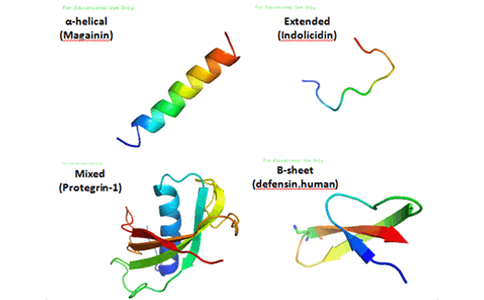A team of researchers has developed a new weapon intended for taking down bacteria that are becoming increasingly resistant to existing antibiotics.
Researchers from the Massachusetts Institute of Technology (MIT), the University of Brasilia and the University of British Columbia have engineered an antimicrobial peptide that they claim will destroy several types of bacteria, including some that are resistant to most antibiotics.
The researchers believe the peptide is of interest because it could provide a new alternative for treating these infectious diseases which, according to a recent study, will kill 10 million people a year, if no new drugs are developed.
According to MIT, antimicrobial peptides, produced by all living organisms as part of their immune defences, kill microbes in different ways.
First, they bore holes in the invaders'cell membranes. After getting inside, they can disrupt various cellular targets, including DNA, RNA, and proteins.
The peptides can also recruit the host’s immune system, summoning cells called leukocytes that secrete chemicals that help kill the invading microbes, MIT noted.
MIT postdoc Cesar de la Fuente said: “One of our main goals is to provide solutions to try to combat antibiotic resistance.
“This peptide is exciting in the sense that it provides a new alternative for treating these infections, which are predicted to kill more people annually than any other cause of death in our society, including cancer.”
The researchers suggest that if specially-engineered peptides, like the one they have created, are developed for therapeutic use, they could be administered as either a stand-alone therapy or with traditional antibiotics, making it more difficult for bacteria to evolve drug resistance.
They are now attempting to understand what it is that makes the engineered peptides more effective compared to naturally occurring ones, with plans of making them even better.
